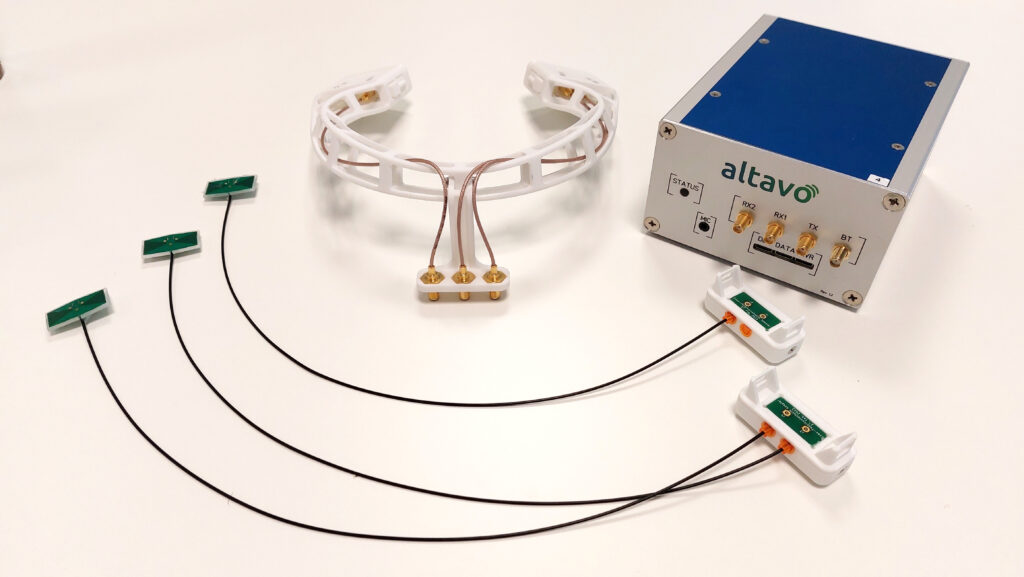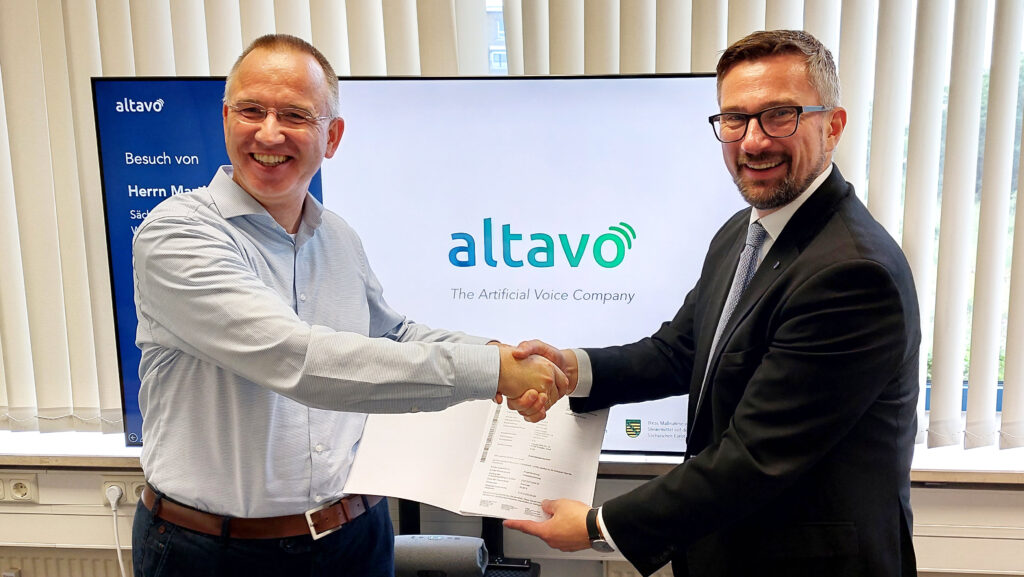First approved joint R&D project in Saxony’s ERDF/JTF technology funding until 2027
The medical technology company Altavo GmbH, founded in 2021, is implementing the project “SEMECO-B3: Multi-sensory non-invasive voice prosthetics using AI (MUSIK)” with scientific partners from the Saxon future cluster SEMECO. These include the Chair of Speech Technology and Cognitive Systems, the Chair of High Frequency Technology and the Institute of Textile Machinery and High Performance Materials Technology (ITM) at TU Dresden.
The project partners have set themselves the goal of helping people who have become voiceless as a result of laryngeal surgery, for example, to regain their own natural-sounding voice. The non-invasive sensor technology can detect and characterize silent speech movements. The latest deep neural networks convert these signals directly into audible speech. The technology developed by Altavo is “non-invasive” as the sensors are attached to the surface of the skin and do not need to be inserted into the body.
The Free State of Saxony is supporting Dresden-based Altavo GmbH and the TUD Dresden University of Technology in the development of an artificial voice with around 3.1 million euros. Of this, 2.4 million euros will go to the company and around 700,000 euros to TUD as a cooperation partner. Saxony’s Minister of Economic Affairs, Martin Dulig, handed over the funding decision to the project partners during a visit to Altavo GmbH. The joint research and development (R&D) project that has now been launched is the first R&D project approved by the Free State of Saxony in the ERDF/JTF technology funding 2021 to 2027.
Minister of Economic Affairs Martin Dulig emphasized on the occasion of today’s project inspection:
Saxony is a state of innovation. The Free State is providing around 600 million euros from European Union and state funds until 2027 for the ERDF/JTF technology funding program, which is open to all technologies and sectors. With this funding, we are also supporting cooperation between industry and science – and thus the transfer of excellent, interdisciplinary research results into commercial applications. Altavo GmbH is a prime example of how cutting-edge scientific findings in the fields of sensor technology and artificial intelligence can be translated into applications that enable many people to participate in everyday life again and greatly improve their quality of life.
Rudolf von Bünau, Managing Director of Altavo GmbH, emphasizes the importance of the location for start-ups:
As a young high-tech start-up, we find excellent starting conditions in Saxony: application-oriented research at the TU Dresden, highly qualified graduates, support from the Free State of Saxony and the SEMECO future cluster for medical electronics, which is currently being established. We want to use all of this to achieve our goal of overcoming voicelessness.
Background: SEMECO future cluster
In 2021/22, TUD Dresden University of Technology successfully participated in the second round of the “Clusters4Future” competition organized by the German Federal Ministry of Education and Research (BMBF) with the SEMECO (Secure Medical Microsystems and Communications) project. The BMBF is funding SEMECO with up to 45 million euros. In order to support the application to the federal government, Economics Minister Dulig issued a letter of intent in spring 2022 promising to support the project partners of the Saxon future cluster with additional R&D projects. “Saxony is keeping its word and is now providing additional impetus for the technology-oriented economy in the Free State,” said Martin Dulig today in Dresden.


